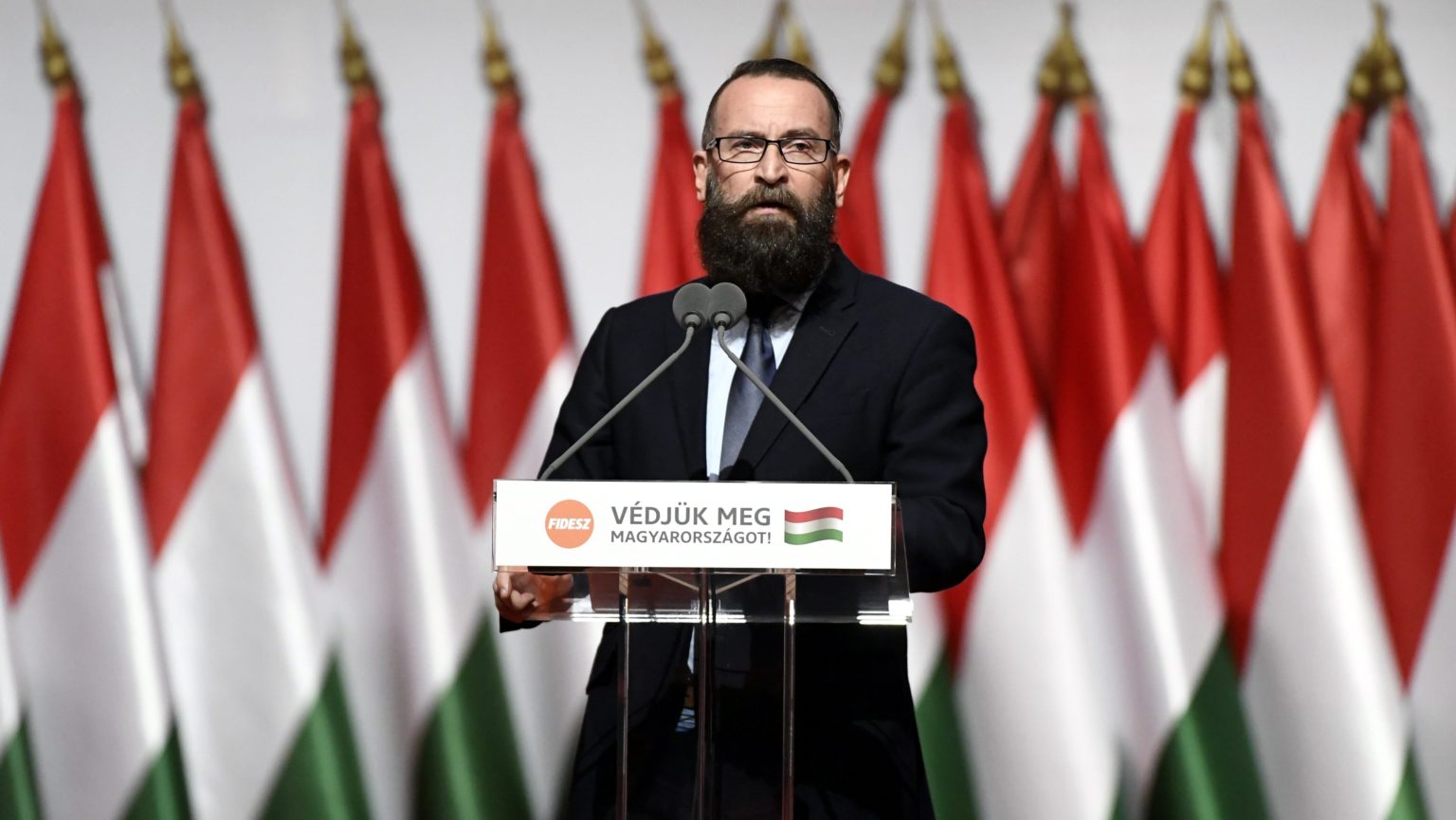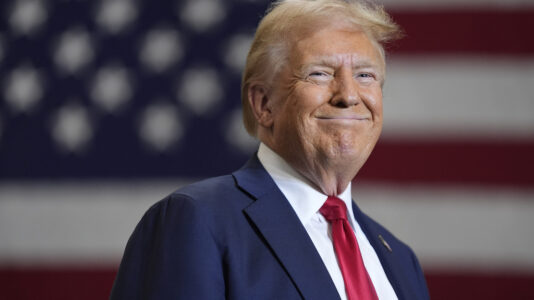Former Fidesz MEP József Szájer has accepted Mária Schmidt’s invitation to work at the 21st Century Institute (XXI. Század Intézet) in Budapest.
“I accepted the honorable invitation of Director General Mária Schmidt and within the framework of the Foundation, my colleagues and I established the Free Europe Institute. With the establishment of the Institute, a new phase of a long-standing, close cooperation begins,” wrote Mandiner.
“We believe in the principle of European integration based on national sovereignty. We stand for freedom, we reject the idea of the United States of Europe, and we agree with the Basic Law of Hungary, according to which the basis of European cooperation is the independence of the member states, in which the nations do not renounce their sovereignty in favor of the Union, but exercise it jointly through the EU institutions,” said Szájer.
In his statement, Szájer presented some future projects, such as developing an independent concept of Europe, creating a sovereignty index for all EU member states, and writing a draft Charter of the Rights of Nations.
His work at the institute “will be of an intellectual, professional, analytical and advisory nature,” adding that he “will not return to the difficult, trying battlefield of politics.”
Szajer also wrote a piece for Mandiner on the occasion of his joining the 21st Century Institute and establishing the Free Europe Institute, which we present here below in English.
The great figures of history always provide lessons, and much can be learned from their actions for the challenges of the present. De Gaulle, the defining figure of France, not only reshaped the history of his country but also had a decisive influence on the future of Europe. The “Europe of Nations” program he represented still offers an alternative to the centralized European Empire. President De Gaulle summarized his proposals in the Fouchet Plan at the beginning of the 1960s, which aimed to create European cooperation while preserving national sovereignty. At that time, Europe had just recovered from the war, so there was a strong desire for peaceful integration between nations. The political and economic relations between France and Germany were a good basis for developing common European ideas.
The good personal relationship between Chancellor Adenauer and President De Gaulle also mattered a lot in this. However, with some – such as the common European court and some community bureaucrats – the horse ran away even then, and the traditionally nationalistic French began to worry about what the future would bring if this did not change. The Fouchet plan was a response to the first symptoms of integration, to the fact that community institutions increasingly interfered with national sovereignty in an open-ended, ever-closer European unification process. The plan aimed at more effective member state control over common European institutions. According to the Fouchet plan, the main decision-making powers should be kept in the hands of the nation-states. According to the plan, a system based on the unanimous decisions of the member states would have ensured that no country would end up in a subordinate position. In this way, common European cooperation would have been achieved while maintaining national sovereignty. The most important decisions would have been made by the leaders of the member states, and each country would have veto power.
The plan was rejected by the member states of the Communities, and the federalist direction became dominant in European cooperation. Since then, in recent decades, the European Union – and its predecessor – has become a centralized organization, withdrawing more and more power from the member states in the name of better efficiency, but the benefits were often not reflected in the results. The Union has proven spectacularly incapable of dealing with the major crises of the past decade and a half. Today, Europe is falling further and further behind in global competition and is in constant crisis. Even today, the principles of the Fouchet Plan can point the way towards a Europe that respects the sovereignty of nations and avoids the imperial European dead end towards which the continent is rapidly heading.
The original European project was based on nations voluntarily lending part of their sovereignty to the community when it was to everyone’s advantage. However, EU integration has increasingly become a master plan aimed at undermining national sovereignty. In Brussels, member states are seen as adversaries. The often arbitrary decisions of the European Court of Justice, based on the primacy and direct application of Community law over national law, further deepen the conflict with the members. This dynamic is especially problematic for the countries of Central and Eastern Europe; they are – due to their historical experience – both committed Europeans and consider national sovereignty to be fundamental, they fought for freedom and self-determination, and they will not give it up on anyone’s orders. The ruling direction of the Union today is clearly federalist, even though people want a nationally based, common Europe instead of an Empire.
The situation is not hopeless, because the force that can develop the program of a Europe based on nations and is capable of reshaping the Union accordingly has recently appeared in an organized political form on the political map of Europe. That new force is the Patriots. The formation of the Patriots’ faction is a turning point of historical importance, for the first time in the history of the European Union, the possibility of a bipolar political structure has been created. There is a chance for a real political debate and – what is now much more important – a real voter-based change of power, which will fundamentally overturn the political system of the Union, which has seemed immovable until now. The new faction poses not only an ideological but also a political challenge to the currently dominant federalist trend, which sees the solution to all important issues in “more Europe.”
The faction of the Patriots clearly formulated its goal: the protection of national sovereignty and the transformation of the European Union. This new force recognizes the need for external protection of the continent’s borders, acts against illegal immigration, protects Europe’s Christian spiritual heritage, represents common sense in debates, and – last but not least – stands up for peace. The formation of the faction shocked the EU power center, which had operated without challengers for a long time. For the first time, an organized political force has appeared that offers a realistic alternative to the ruling direction, and this new dynamic is also visible at the level of the European Parliament since the European patriots make up the third largest faction. The European Parliament is no longer only the scene of liberal and federalist tendencies but has become a real political arena, where supporters of national sovereignty are present as a shaping force. The Patriots faction presents a clear alternative to centralization efforts and gives citizens the opportunity to directly influence the decisions made about them. Therefore, democracy pulls Europe out of trouble: The Patriots offer a return to the once successful Europe, which does not operate from the top down, does not command, does not punish, but builds European cooperation on respecting the rights of equal members assigned to each other.
De Gaulle and the Fouchet plan are important guidelines for the future of Europe today. Although the concept can no longer be revived in its original form, its spirit, the heart of which is the sovereignty of nations, is not only valid but also realistic today. It is possible to have a pro-European policy and a policy based on national sovereignty at the same time. De Gaulle did not succeed 60 years ago, and in order for this idea to win today, more strength and determination are needed than then, but it is not impossible, because for this realistic program it is possible to obtain the democratic support and vote of the majority of the citizens. With the appearance of the Patriots faction, there is a real chance that the European Union can radically change. Europe will be strong again when it returns to the basics: respect for national sovereignty and democracy.
Szájer was found in violation of Covid restrictions back in 2020, when the police broke up a gay sex party he and a couple dozen other men were attending during the lockdowns.
In response to an inquiry from Telex regarding PM Viktor Orbán’s reaction to Szájer’s new position, Bertalan Havasi, the prime minister’s press chief, replied, “It’s about time.”
Back in 2020, Orbán had stated: “What our fellow MEP József Szájer did does not fit into the values of our political community. We will not forget or deny his 30 years of work, but his actions are not acceptable and cannot be defended,” adding that he had made the right decision in apologizing, giving up his EP mandate, and resigning from Fidesz.
It had been largely assumed that Orbán would in no way cease having contact with Szájer, the head of Fidesz’s EP delegation and one of the main intellects behind the party, as well as one of its founding members. Havasi added this past week that “the prime minister regularly meets with József Szájer,” as they have been friends since university.
The former MEP says that he has used the last four years for spiritual growth while also dealing with a serious illness.
Pertaining to his resignation from political life back in 2020, he stated: “I will not comment on private matters related to my resignation in December 2020 in the future, it is part of my legally protected private life, it is not the responsibility of anyone except me and my immediate environment,” adding only that he did not consume drugs in 2020, no proceedings were brought against him, and that he only had to pay a fine for violating Covid restrictions.






